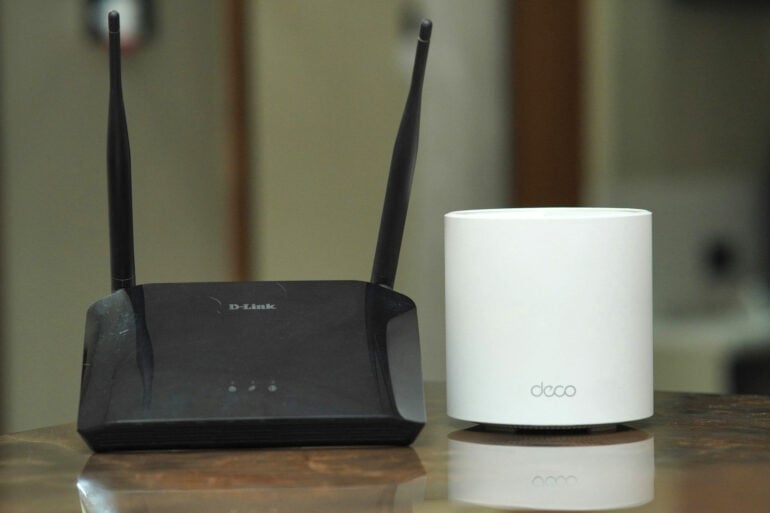
NBN Co plans to boost wholesale speeds this September, potentially increasing some connections’ download speeds up to 2,000Mbps. Viewed as a welcome move by some, it’s raised concerns that customers’ existing hardware might not be ready for the network upgrade.
As part of NBN Co’s “Accelerate Great” project, internet speeds will increase for those with Fibre to the Premises (FTTP) and Hybrid Fibre Coaxial (HFC) connections. NBN 100 plans will increase up to 500Mbps download speeds, while those on the top tier will get speeds as high as 2,000Mbps.
However, there are concerns that household hardware could prevent some from getting the full benefits of the speed boost. The ACCC recently updated its broadband speed claims industry guidance to ensure that retail service providers (the companies that sell internet) disclose that speeds may be impacted by customers’ equipment.
For example, modems and routers have maximum speed capacities, while a home layout may also affect internet connectivity. Higher internet speeds are only as good as the equipment that distributes the data.
If that sounds confusing, good news might be on the horizon. As part of the ACCC’s consultation process — which included submissions from NBN Co, Telstra, and TPG Telecom — one suggestion was to create a register of modems and routers compatible with higher internet speeds.
Insufficient modems and routers aren’t the only concerns on telcos’ minds. In Aussie Broadband’s submission to the ACCC, it alleged that “some providers have intentionally limited, or throttled, the performance of their customers’ modems/routers.”
Aussie Broadband didn’t comment further when asked by WhistleOut Australia, but it opens up a whole can of worms regarding the hardware discussion.
Do you need to upgrade your modem or router?
For the most part, an immediate equipment upgrade isn’t necessary. NBN’s speed increase doesn’t happen until September 2025, giving you plenty of time to mull over options. And if you don’t have an FTTP or HFC connection, most of this doesn’t apply to you.
As an important aside, be wary of thinking of modems and routers as the same thing. There are plenty of devices that function as both, but generally speaking, a modem connects to the internet source, while a router distributes the internet to other devices.
Always double-check when buying networking equipment that you’re getting specifically what you need. When in doubt, your telco should be able to provide advice relevant to your situation.
If you’ve bought a modem or router in the past few years, it likely supports higher speeds. Wi-Fi 6 is fairly common, while the latest and fastest Wi-Fi 7 technology is starting to enter more homes.
But if you bought a cheap router before 2020, chances are it’s time for an upgrade. Take this $99 D-Link modem router from JB Hi-Fi, for example. It uses an older 802.11n (also known as Wi-Fi 4) technology, while the “N300” in its product name indicates that its maximum transfer speed is 300Mbps.
Even some Wi-Fi 6 modems and routers won’t take full advantage of 2,000Mbps download speeds. As indicated by the name of the TP-Link AX1500 Wi-Fi 6 router sold by The Good Guys, it supports speeds of up to 1,500Mbps.
To simplify a complex topic, you need to check that the maximum transfer speeds exceed the speed of your internet plan. Each simultaneously connected device — like phones, laptops, gaming consoles, etc. — takes a slice of the bandwidth pie. So, even if a router supports 2,000Mbps speeds, it’s unlikely you’ll get those speeds one multiple devices enter the equation.
We’ll take a more in-depth look at what you should keep an eye out for closer to NBN’s speed boost in September. For now, you can browse the cheapest NBN plans in Australia.
GadgetGuy occasionally uses affiliate links and may receive a small commission from purchased products.
The post Your modem could be too slow for NBN’s faster internet speeds appeared first on GadgetGuy.






0 comments:
Post a Comment